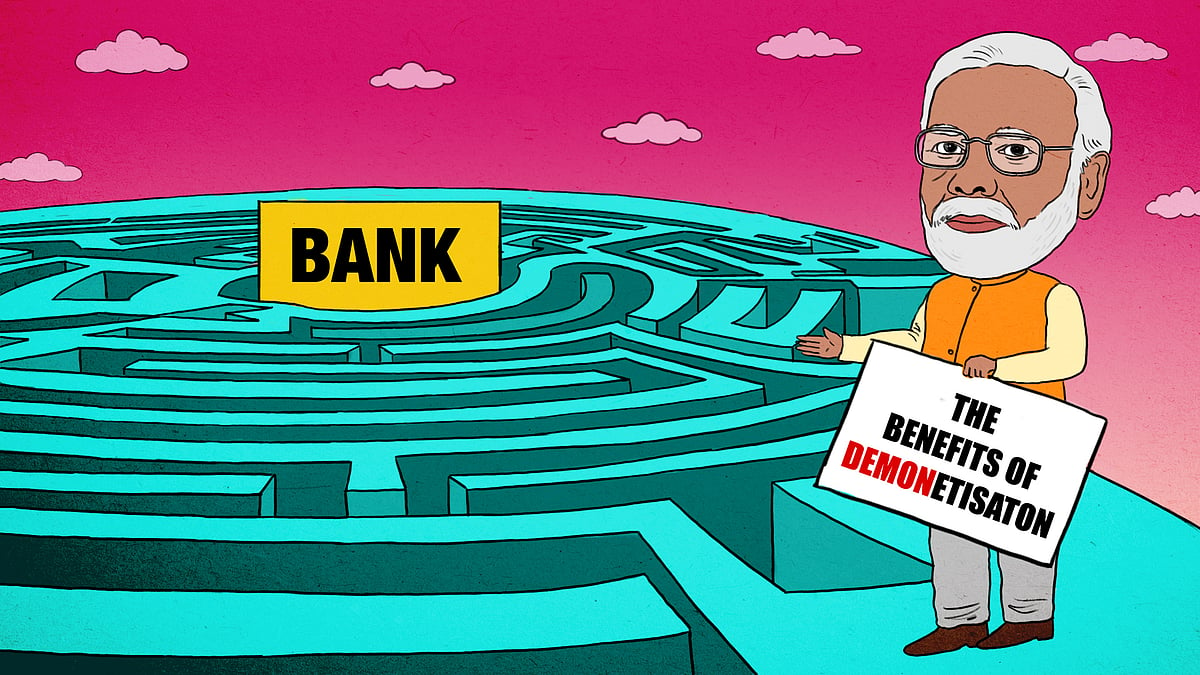‘Like a filmstar who fades away’: Newspapers bid farewell to the Rs 2,000 note – and criticise the RBI
The RBI’s announcement on Friday lacked clarity, several editorials said.
Less than seven years after they came into our lives, it’s time to bid farewell to India’s purple Rs 2,000 notes. That’s what the Reserve Bank of India announced last week.
The finance secretary assured the public that the move will not cause “any disruption either in normal life or in the economy”, but no one can forget the circumstances under which the notes were introduced in the first place – the Narendra Modi government’s demonetisation move of November 2016.
According to the RBI, the existing notes will continue to be legal tender, and citizens have been told to deposit or exchange these notes before September 30. There’s no clarity on the status of these banknotes after this date.
Newspaper editorials were uniformly critical of the RBI’s Friday announcement.
The Times of India said the wording of the RBI’s announcement provided clarity “neither on the motivation nor the minutiae”. And, “as is inevitably the case with such sudden decisions, creative crookedness is peaking,” the editorial said.
“As for the argument that shady people hoarding unaccounted cash will be smoked out, perhaps some will be. But seriously, do people who play crooked money games with very large sums depend only on bundles of currency notes?” TOI said. “After all, the black economy survived demonetisation.”
Indian Express said the announcement “only reinforces the view” that the introduction of Rs 2,000 notes contradicted the government’s claims that demonetisation was “a well thought out, effective and permanent strike against black money”. The decision also seems “unnecessary” from an “operational perspective”.
“Such decisions raise more questions than answers and shine unflattering light on policy-making in the fifth largest economy in the world,” the editorial said. “...Both government and RBI must address apprehensions that, six and a half years later, few lessons have been learnt.”
The Hindu Business Line said the decision, alongside this new tax on overseas spending on credit cards, was “cryptic, abrupt and does not appear to have been thought through carefully”. Its strap called the decisions “ham-handed” and a “nasty move”.
“There could be a rush to deposit these notes or devise ingenious ways to launder the money. IT sleuths would be on alert,” the editorial said. “This is all very well, but the shock to innocent people is an unintended consequence and could have been avoided with better execution.”
The New Indian Express’s editorial called the announcement “a knee-jerk reaction” and a “case of throwing the baby out with the bathwater”.
“With this latest move, the government has again set the cat among the pigeons,” the newspaper said. “People would be hassled, the economy would suffer, and, worst of all, it might shake people’s faith in the rupee. But the government refuses to learn its lessons even as its action inconveniences its citizens.”
Deccan Chronicle poetically described the note as a “lion of the money food chain in India” and described its withdrawal as similar to a “filmstar or a cricketer who just fades away after a much-promising debut”. It was “born with a lot of hope, but having failed to achieve much, likely having worked with the wrong people and for the wrong cause”.
“RIP note,” the editorial ended, “goodbye.”
Farewells aside, it’s important to remember how demonetisation played out six years ago and its consequences. Read this report in Newslaundry on the idea, the objectives, and the post-event justifications.
 Demonetisation at 6: The idea, the objectives, and the post-event justifications
Demonetisation at 6: The idea, the objectives, and the post-event justifications